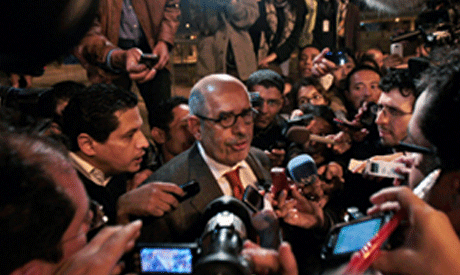
Former Director General of the International Atomic Energy Agency, IAEA, and Nobel Peace Prize winner Mohamed ElBaradei (Photo: AP)
Ahram Online has gained access to a copy of the Bill of Rights that possible presidential candidate for Egypt, Mohamed ElBaradei, has tailored and will present to the public for debate.
The bill, which will be released shortly by Ahram Online, is divided into two sections: 1) The basic principles and 2) Basic rights.
In the first section, the bill stipulates that the new Egypt will be a democratic republic built on the rights of citizens and equal citizenship. It sets Islam to remain as the official religion of the country, Arabic the main language and the sharia law (Islamic law) governing legislation. It also declares that Egypt will have a multi-party system, an independent judiciary and social justice and that the armed forces will be the protector of the state, its independence and safety.
In the second section the bill stipulates that the new Egypt will uphold the dignity of every citizen, freedom of expression, the right to peaceful protests and freedom of religion. The bill also bans the arrest or detention of any citizen without being formally charged and that every suspect is innocent until proven guilty. It also says that every citizen has the right to own property, the right to work and join syndicates, the right to education and the right to privacy.
The bill concludes with a statement that it does not include any articles that can be interpreted as a delegation to any of the state institutions or groups or individuals the power to act in any way that will strip Egyptian citizens of the rights listed in the bill.
The bill also states it includes itself in the constitution and excludes any of the rights listed from being subject to change, cancellation or amendments.
Short link: